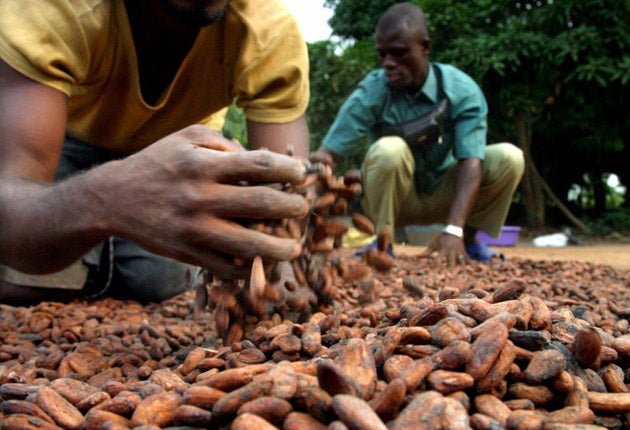Major companies fail to disclose slavery and trafficking risks, warn UK experts
A watchdog on corporate accountability, CORE, said a study of 50 big name brands showed the statements businesses filed outlining actions they had made to combat slavery in their supply chains lacked detail and transparency

Some of the world's top brands including confectioners, jewellers and cosmetics giants are failing to disclose slavery and trafficking risks in their operations and supply chains, British anti-slavery experts said on Wednesday.
Under Britain's 2015 Modern Slavery Act, all businesses with a turnover of more than £36m ($48m) must produce an annual statement outlining actions they have taken to combat slavery in their supply chains.
CORE, a watchdog on corporate accountability, said a study of 50 big name brands showed many statements were short on detail and lacked transparency. Five appeared not to have filed any statement.
An estimated 24.9 million people are in forced labour globally, according to the International Labour Organization.
"The level of complacency from major companies, particularly those that trumpet their corporate social responsibility, is startling," CORE's director, Marilyn Croser, said in a statement.
"Genuine transparency about the problems is needed, not just more PR."
The study looked at statements from companies sourcing raw materials linked to labour exploitation, including cocoa from West Africa, mined gold, mica from India, Indonesian palm oil and tea from Assam.
It also examined those involved in high-risk sectors such as clothing, hotels, construction and Premier League football clubs, which are considered high-risk partly because of their hospitality and merchandising operations.
Although child labour and forced labour are endemic in West African cocoa production, CORE said Mars was the only chocolate company of those studied to specifically acknowledge possible risks in the supply chain.
Other companies, including Ferrero and Lindt & Sprungli, failed to provide information on their supply chains, it said.
Cosmetics giants, including L'Oreal and Estee Lauder, also made no mention of the risks of slavery associated with mica, a sparkly mineral used in make-up, the report said.
Most mica comes from northeast India where around 20,000 children are estimated to work in hundreds of mica mines.
Researchers said leading jewellery firms, including Tiffany and Pandora, had also failed to include any detail on slavery and trafficking risks linked to gold-mining, despite estimates suggesting close to one million children work in gold mines.
Pandora told the Thomson Reuters Foundation it focused as much as possible on using recycled gold.
"We take this issue very seriously - 86 percent of our gold is recycled and 100 percent is certified," said Claus Teilmann, the company's vice president of ethics.
None of the other companies were immediately available for comment.
The report also said only one of the five tea companies studied referred to Assam in northeast India, a region where low wages have been linked to human trafficking on tea estates.
CORE said just over 3,000 companies had met a deadline of 30 September for filing statements under the Modern Slavery Act, meaning thousands had failed to comply.
It added that many of the statements in its study were not signed by a director as required by legislation.
But researchers also highlighted good examples, praising German discount grocery chain Lidl for publishing a list of factories supplying its own-brand textiles and footwear.
Three construction companies - Barratt, Bovis and Unite Students - also acknowledged specific risks of modern slavery in the construction sector and in their own businesses.
CORE made clear it did not directly allege any of the named companies had slavery or human trafficking in their operations.
But it said the disappointing quality of many statements suggested companies were not taking the issue seriously.
Thomas Reuters Foundation
Join our commenting forum
Join thought-provoking conversations, follow other Independent readers and see their replies
Comments
Bookmark popover
Removed from bookmarks